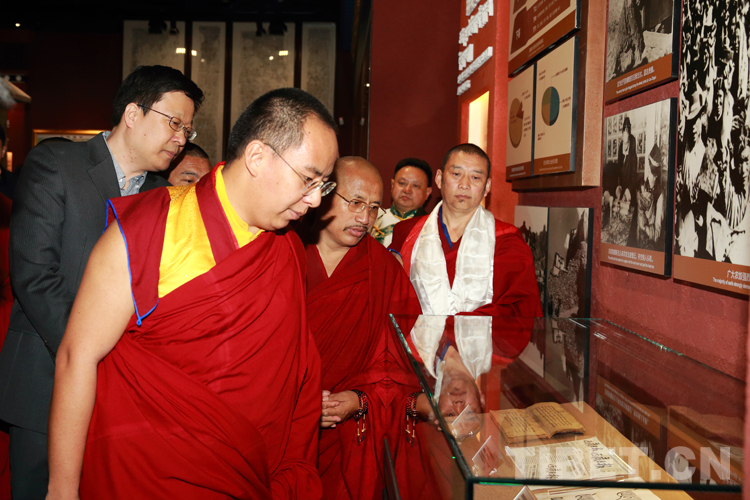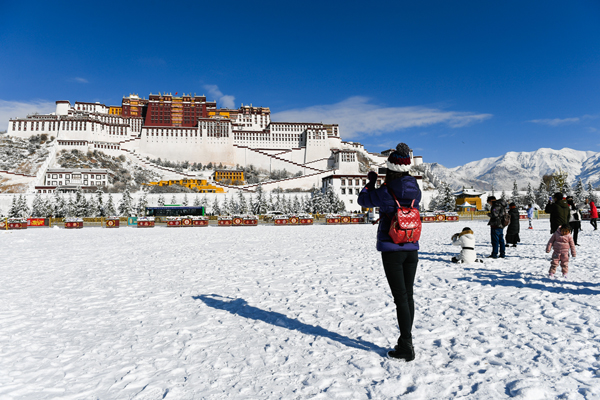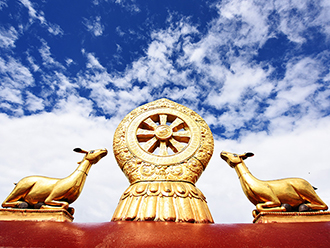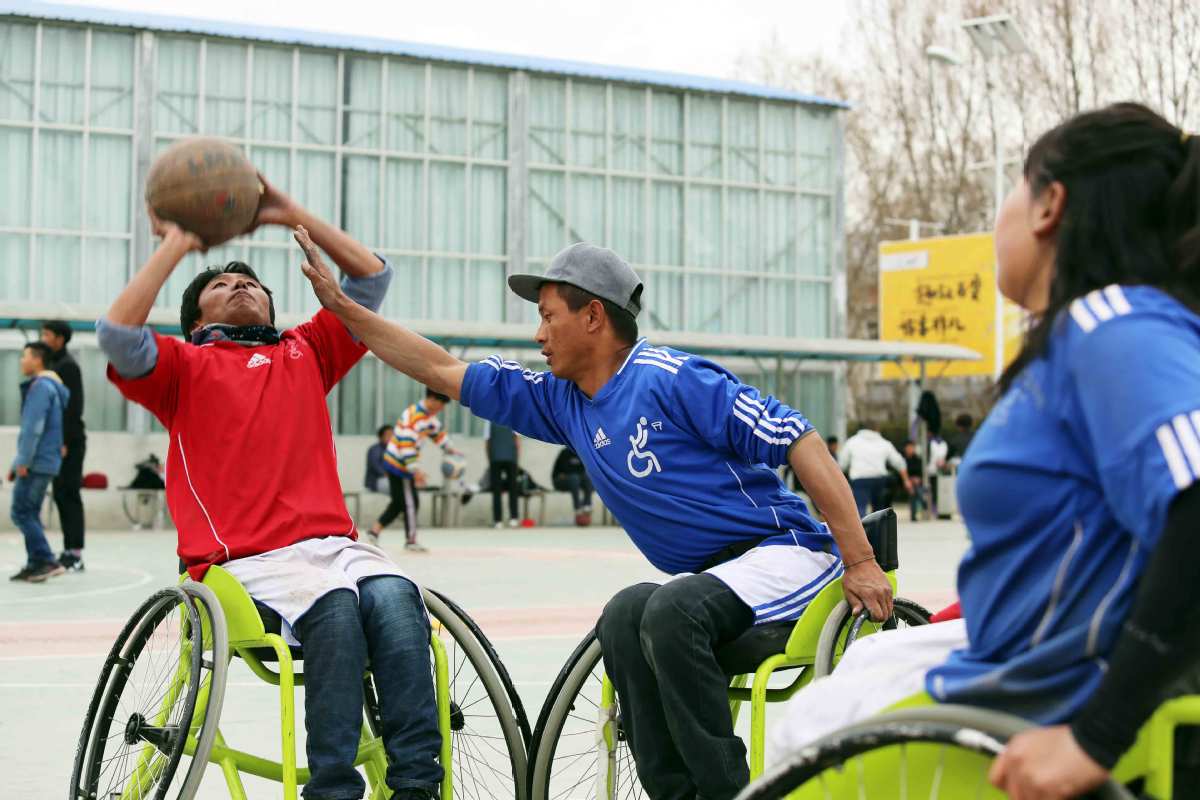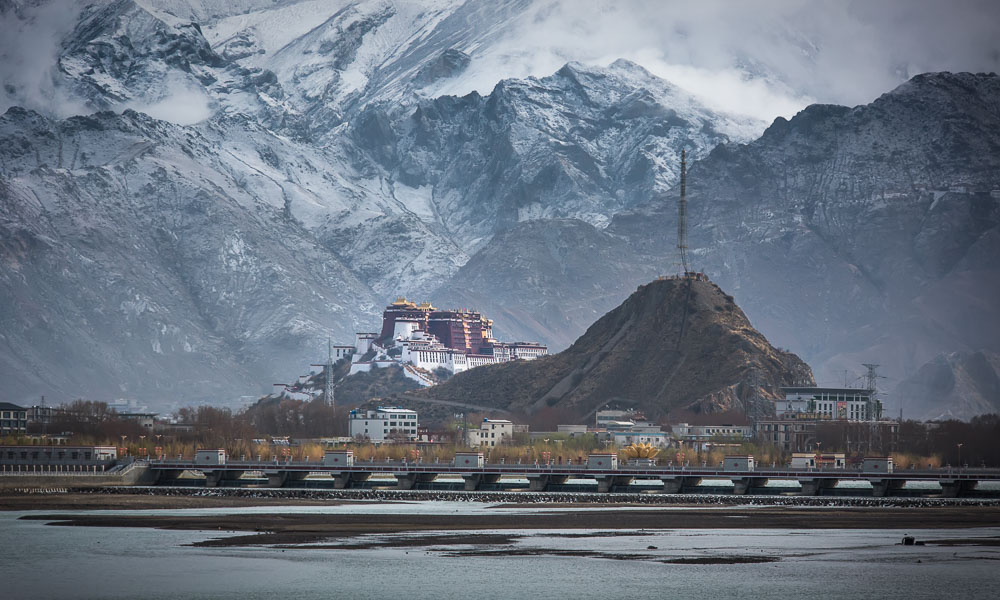Former serf Tashi Norbu: Taxes in old Tibet more than stars in the sky
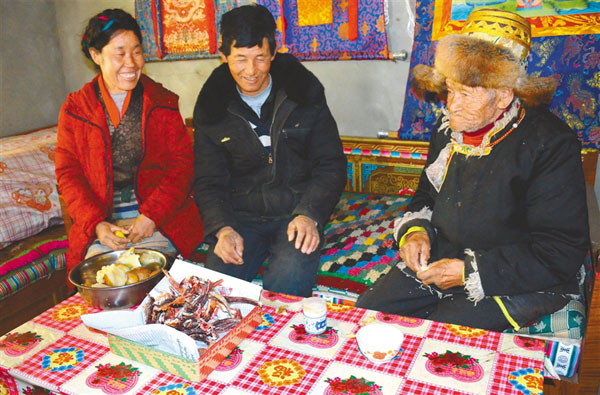
Tashi Norbu (first from right) is chatting with his son, Tsering, and his daughter-in-law Dawa Yangzom.[Photo/xzxw.com]
Tashi Norbu, male, born in August 1927, lives in Ngagzha Village, Ngagzha Township, Chanang County, Lhoka City, southwest China's Tibet. At an age of 92 years old, he has lived a long life and is envied by all in the village.
Before the democratic reform was implemented in Tibet in 1959, Tashi Norbu was a tralpa (serf) on the Ngagzha Estate. Administered by the agent of Nenang Monastery, the Ngagzha Estate had more than 500 mu (1 mu = 0.165 acres) of cultivated land and more than 30 serf households.
After the democratic reform, the shackles of feudal serfdom on serfs were completely smashed, and Tashi Norbu became his own master and opened a new chapter in his life.
When we first met Tashi Norbu, he was chatting with village cadres in the village committee compound.
"At that time, we rented 8 mu (1.32 acres) of land from the estate and fed more than 30 of the estate's sheep. All my family was crowded in two thatched sheds that couldn't keep out wind and rain. We had to work every day," Tashi Norbu recalled. They could only get four bags of tsampa for the whole year, and everything else was taxed.
"We not only had to pay taxes to the Ngagzha Estate, but also to Nenang Monastery, Ngagzha Monastery, and to the administrative body of the local Tibetan government in old Tibet. I remember that if I wasn't working in the fields, I was on my way to pay taxes," Tashi Norbu said.
In old Tibet, not only were there many institutions collecting taxes, there were also many kinds of taxes.
"For cultivating land, we had to pay a grain tax. For having children, we had to pay a head tax. For raising cattle, we had to pay a cattle tax… My family had one chicken, and we even had to pay 10 eggs per month as an egg tax. The sheep dung that we collected had to be paid as a fertilizer tax," Tashi Norbu said.
Faced with various ways of exploitation and heavy taxes, serfs were unable to maintain normal lives. They were often hungry and suffered severe punishments.
Tashi Norbu said: "I saw with my own eyes that tralpas who were beaten by the estate manager because they could not pay the butter tax. There were five families on the estate who were forced to flee over because they could not pay the taxes."
In old Tibet, in addition to cultivating the land that they rented, serfs also had to work for monasteries and estates unpaid. Tashi Norbu's father died from overwork while transporting stones to repair Ngagzha Monastery.
"As a serf, your life was not your own," Tashi Norbu said.
Unable to see an end to the dark days, Tashi Norbu did not dare have any hopes for his life until in 1959, when the People's Liberation Army came and dispelled the dark clouds, Tashi Norbu's life finally shone.
"When democratic reforms were being implemented, I was on my way to Lhasa to pay the firewood tax. I met the ‘Jingdrol-makmi' (People's Liberation Army in Tibetan) transporting goods, and they told me to go home without paying the tax. They also gave us land. At the time, I didn't dare believe it," Tashi Norbu said.
"After I got back to the Ngagzha Estate, I found out that the People's Liberation Army had arrested the evil estate manager and abolished all taxes and gave us land, homes, and livestock. My family received 12 mu of land, three houses, and more than 10 sheep."
"After the land was divided, the People's Liberation Army also asked us to come to the Samye District for a meeting and set up a farmer's association. I attended the meeting as a village representative, and I was also elected leader of a village team. Later, I became the vice captain of the production team. Since then, life has been getting better and better."
What Tashi Norbu feels most directly and distinctly after the democratic reform is, that his family had enough to eat, life more relaxed, and they could sleep well at night.
Today, Tashi Norbu lives in a 190-square-meter house. He receives an old-age subsidy and a pension, and also enjoys medical insurance. His family has 15 mu of land, 8 cattle, and piles of grains. They also earn a yearly income from ecological jobs and by weaving Tibetan carpets.
Editor: Tommy Tan.
Tibet Stories
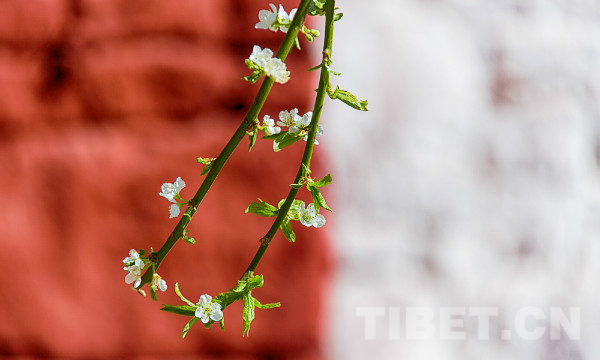
Across China: Favorable ethnic policies bring benefits for Tibetan children
Sonam was born in Jone County of Gannan Tibetan Autonomous Prefecture of northwest China's G...
Editor’s Choice
- 11th Panchen Lama: abolition of serfdom engraved in the minds of the people
- Eco-friendly toilet to be set up at 7,028m on Mt. Qomolangma
- Tibet establishes HIV/AIDS prevention, treatment association
- Panchen Lama: democratic reform an important turning point for Tibetan Buddhism
- Ranger roams reserve to protect rare golden yaks
